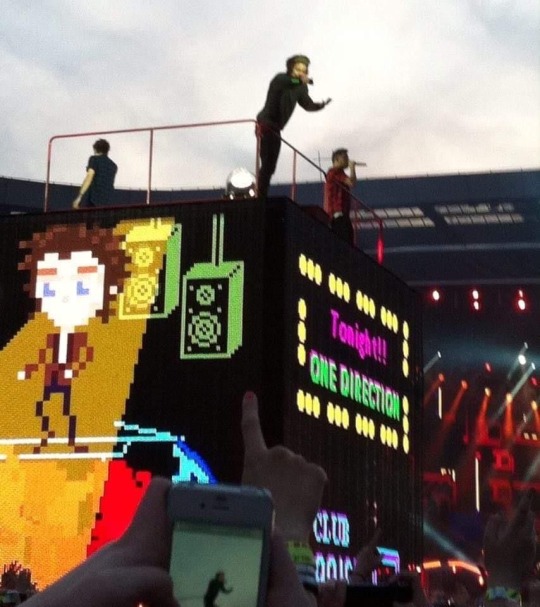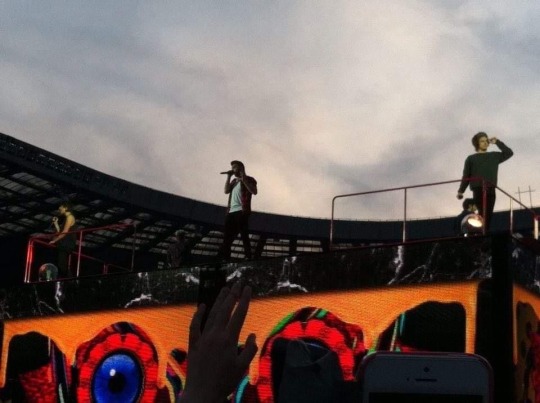#THIS IS BY NO MEANS A CLOUT POST BECAUSE I WAS GENUINELY GOING TO UNLEASH IT DAYS AGO
Explore tagged Tumblr posts
Text



Edinburgh, Scotland, 2014
#THIS IS BY NO MEANS A CLOUT POST BECAUSE I WAS GENUINELY GOING TO UNLEASH IT DAYS AGO#but damn ik this is very harry forward but im honestly choked up that one part of my childhood will never come back as a whole again#i still remember the day i stayed up for the 10 year 1D anniversary with my old online friends#and the time me and two friends pretended to be members of the band#my midnight memories CD insert hasn’t been on my wall in 4 years but i still remember that too#one direction
4 notes
·
View notes
Text
Making the Case for Volunfeminism:
Volunfeminism - offering aid to disadvantaged communities according to the needs of those communities with a specific focus on the issues that affect women, and, most importantly, on allowing those women the voice and the capacity to empower themselves with the help of feminist outreach.
In the days leading up to my graduation, I’ve found myself grasping for chords, shelling out twenty dollars a pop, at the very least, just to prove to the people of Facebook that I accomplished something in college that somehow earned me a colorful stole. Standing in line to purchase these graduation nonessentials, there was little else for me to do but observe and eavesdrop on my peers. Many of them were carrying stoles emblazoned by flags – Jamaica, Ghana, Brazil, Kenya, and Ethiopia, among others – to commemorate their trips abroad. As they waited in line, they told stories about building houses or putting in a well or teaching a course in English, living with their host families, and, without a fail, they would always end their little tales with the phrase: “It changed my life.” Their friends would congratulate them on their activities and the humanitarians would shrug off their praise humbly, saying things like “Someone had to do it,” or “They helped me more than I ever helped them,” or “I’m just glad I was able to make a difference,” with a dismissive wave or a nervous laugh – acknowledging a compliment without any overt bragging. And, really, the people I overheard may have genuinely and responsibly provided humanitarian aid among disadvantaged populations. They may have also only discussed their experiences because they felt as though they were pressured to do so. But, regardless of their particular situation, the cliched responses they provided to the inquiries posed by their friends echo the sentiments of many individuals who use their experiences within disadvantaged communities as avenues through which they might obtain social clout from their peers.
This type of attention-grabbing tactic is exhibited clearly on the tumblr blog entitled humanitariansoftinder.com. With very little to go on by way of context, this website showcases snapshots from the tinder bios of the men and women who feel it appropriate to post their experiences helping disadvantaged communities, many of which appear to be poor, unclean, and African, on a dating forum. The public, at large, has had many reactions to this website and the work it has done, as it has been the subject of articles in magazines like The Guardian, The Washington Post, The Huffington Post, Business Insider, The Atlantic, NY Mag, The Daily Dot, Nerve, and others(Humanitarians of Tinder). The reactions to this website and the critiques it has made are expectedly mixed. On the one hand, authors such as Caitlin Dewey from The Washington Post point out that anonymously publishing sniped screenshots of tinder profiles could be a recipe for disaster because “shaming often invites repercussions that are totally out of proportion with the perceived crime,” and this website exists purely to put their “humanitarians” in place (Dewey). On the other hand, Eleanor Goldberg, a writer for The Huffington Post, asserts “that the volunteers on Tinder could be a little bit more humble about their advocacy work,” especially given the responses unleashed, agreeing that using disadvantaged groups as props within selfies “is just flat-out messed up” (Goldberg). That being said, both these articles and others agree that, while the young people pictured in these photographs are “tone deaf” and insensitive, the work that they’re doing is admirable and “we can’t completely fault them for showing off their selfless side” (Dewey, Goldberg).
In an article entitled “Humanitarians of Tinder: Constructing Whiteness and Consuming the Other,” however, Nisha Toomey argues the opposite. Regardless of intention, these individuals are posting these photos on their profiles “because they feel such portrayals make them particularly alluring to those they are trying to attract,” and, in essence, are implying that there is something “fashionable or attractive about people from Western middle-class backgrounds crossing cultures and geographies to meet, mesh with, and […] post their experiences” (Toomey 152). She goes on to describe how these experiences conflate with ideas regarding voluntourism within our current era, and she goes on to critique voluntourism in this capacity for the remainder of her paper, her investigation adopting the same tone that African feminist scholars have utilized in the past when discussing the negative impacts that “intervention efforts” from the Global North have within African nations at large.
While there has been a growing push for these intervention strategies to pay more attention to the needs of the communities they are serving than the volunteer groups providing them with aid, all-too-often, individuals offering aid focus on issues that end up placing Western values upon a pedestal through which the customs of developing nations might be scrutinized. An example of this might be found within the following clip of an American raising money to end female circumcision in African countries.
youtube
There are, indeed, medical consequences to female circumcisions; however, many women in African nations view female circumcision as vital to establishing their connections with their ancestral homeland (Kiguwa 220-222). Many women see circumcision as a right of passage for themselves and their daughters and, in this capacity, while the intentions behind the individuals in this video are most likely well-meaning, the efforts presented within this video dismiss the importance of female circumcision as an important, cultural right within the nations they are meant to help. Indeed, this kind of activism does more to proliferate Western values than to empower the individuals it is meant to help, which means that the aid it provides is not focused on directly improving upon the lives of the individuals that need help the most; rather, it is focused on the “backward” nature of the developing world, and in the role that the white woman can have in fixing it.
This type of activism has a long and controversial history within feminism. Starting during the second wave feminist movement, many women who wanted to improve the global status of women traveled to Africa and were moved by the postcolonial strife suffered through by many women in its developing nations. In particular, outsiders from the Global North noticed the how many women were personally violated by war, and, in trying to get international justice for the crimes committed against them, emphasized rape as the singular experience of an African woman in a war-torn nation. By portraying African women as victims of their sexuality, Western intervention groups encouraged aid to be given to women who specifically suffered injuries and traumas associated with rape. While this type of aid is necessary and crucial for women in these nations, the problem becomes that in portraying the African woman only as a rape victim, volunteers encourage deep-seated historical stereotypes that portray the African woman as weak and in need of saving from the white woman (Baaz and Stern 93). Furthermore, by reducing African women to a single story of trauma, relief organizations ignore the experiences of many women who actually participated in inflicting violence during wartime, and, by extension, do not provide the humanitarian aid needed most by the communities these organizations wish to help (White 137).
Volunfeminism, then, proposes that volunteer efforts within the developing world should take its cues from the female activists living within the developing world. As activists who have lived within these communities, they are the ones who know what is most needed by their communities from international relief organizations. Volunfeminism suggests that, perhaps, voluntourism, as a $2.6 billion industry might be able to do more good than harm if its volunteers are pointed in the direction that could do the most good for the largest amount of disenfranchised individuals (Toomey 152).
0 notes